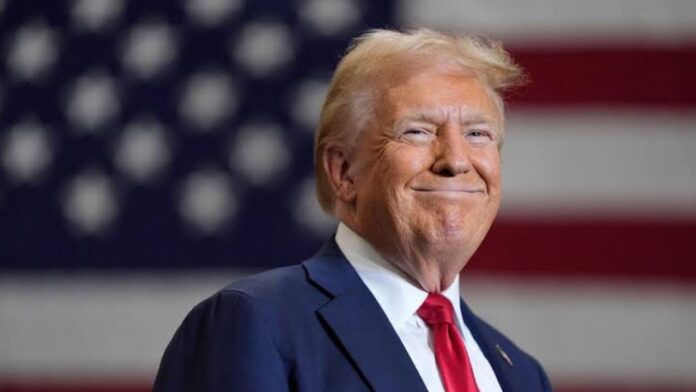Reuters reports that the dollar rallied sharply on Tuesday after the United States (U.S.) President-elect Donald Trump pledged tariffs on all imports from Canada and Mexico, and additional tariffs on China.
Neither the United States nor China would win a trade war, the Chinese Embassy in Washington said on Monday, after U.S. President-elect Donald Trump threatened to slap an additional 10% tariff on all Chinese imports when he takes office on January 20.
“About the issue of US tariffs on China, China believes that China-US economic and trade cooperation is mutually beneficial in nature,” Chinese Embassy Spokesperson Liu Pengyu said in a statement.
“No one will win a trade war or a tariff war,” Liu said.
Trump said he would impose tariffs until China stops the flow of illegal drugs, particularly fentanyl, into the United States.
In the statement, Liu said China had taken steps to combat drug trafficking after an agreement was reached last year between President Joe Biden and Chinese President Xi Jinping.
“The Chinese side has notified the US side of the progress made in US-related law enforcement operations against narcotics,” Liu said.
Asian stocks declined, giving back some of the robust gains of the previous session, when they were buoyed by the nomination of fund manager Scott Bessent as Treasury Secretary, considered by investors as a voice for Wall Street in Washington.
Bessent’s appointment had also led to a sharp fall in U.S. yields as investors scooped up Treasury bonds, sending the dollar sliding in the previous session.
“It’s almost as if Trump wants to remind markets who is in control, after nominating Scott Bessent as Treasury Sec – a man markets expected to cool Trump’s potency,” said Matt Simpson, senior market analyst at City Index.
“With the Canadian dollar rising against the Mexican peso, markets are assuming this will hit Mexico the hardest.”
The dollar jumped 1.5% to 20.5810 Mexican pesos as of 0549 GMT on Tuesday, and climbed 0.9% to C$1.4115. It strengthened 0.25% to 7.2644 yuan in offshore trading , after earlier reaching the highest since late July at 7.2730 yuan.
Australia’s risk-sensitive dollar—which also tends to reflect the outlook for top trading partner China—declined 0.25% to $0.6488, after earlier dipping to $0.64335 for the first time since August 5.
“It was just last month that Trump said that ‘the most beautiful word in the dictionary is tariff’, so there really should not have been a surprise in Trump’s intention, just in the timing of the comments,” said Sean Callow, a senior FX analyst at ITC Markets.
“The fall in trade-sensitive currencies makes sense, and should persist near term.”
Japan’s Nikkei dropped 1.4%, giving back Monday’s gains, as investors contemplated the risks of tariffs on the nation’s many heavyweight exports, particularly automakers. Toyota slid more than 2% and Nissan tumbled almost 4%.



